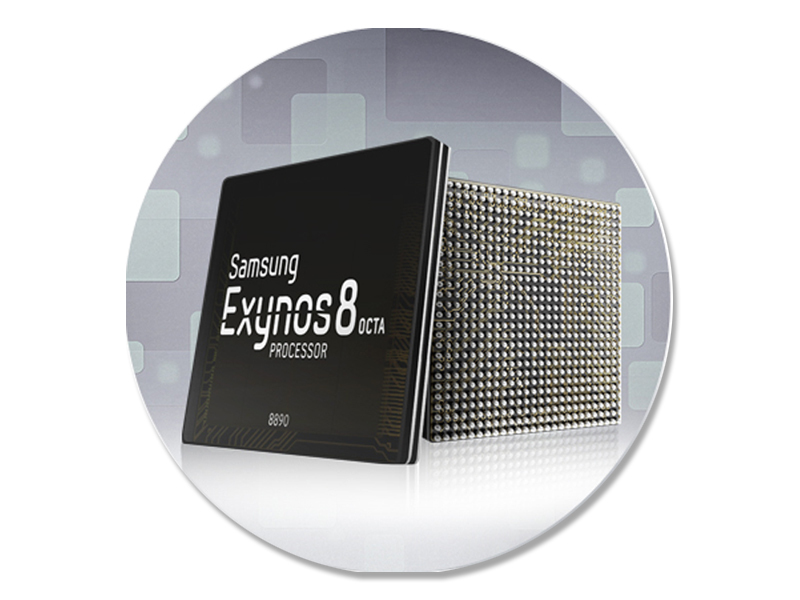Samsung shows off new Exynos 8 Octa processor
Core for more: the chip wars are about to heat up

You wait months for a set of chips, then two come along at once. At least, we think that’s the phrase. Isn’t it?
Fresh off the back of yesterday’s Qualcomm Snapdragon 820 release, Samsung, keen not to be left lagging in the race for mobile core domination, has unveiled its Exynos 8 Octa 8890 processor.
OK, calm down: we know there are a lot of 8s in the name. Samsung just wants to make doubly sure that everyone knows its CPU has 8 cores. That’s eight. One for every American Pie film.

Anyway, core-ny references aside, Samsung’s latest Exynos offering looks set to be quite the powerhouse. Built on its 14nm finFET process – like, you know, other things – it’s the company’s first custom-designed CPU based on 64-bit ARMv8 architecture. Basically, it’s quick. Really quick.
In fact, Samsung reckons it’ll deliver a 30 percent performance improvement over the Exynos 7 Octa – which, when you think about how quick the S6 was on that chip, is pretty hefty.
Oh, and it’ll be 10 percent more efficient, too – ideal for graphics-heavy gaming with the latest ARM GPU, which the Exynos 8 carries.
Like the Snapdragon 820, the new Exynos offering will also integrate the latest LTE tech – meaning download speeds of up to 600Mbps. Perfect for streaming 4K on the divine display the Galaxy S7 will likely be toting.
Oh, did we not mention the S7? Well, the announcement of the 8890 today, with Samsung planning to begin mass production in late 2015, suggests the next Galaxy flagship is highly likely to be packing Exynos smarts under its hood – though we may still see it carrying the Snapdragon 820 in international markets.
Talking of the 820, the side-by-side performance of the two next-gen chips is the real story here. With the (in)famous Samsung split from Snapdragon for the Galaxy S6, how the 820 holds up alongside the Exynos 8890 could be pivotal for Qualcomm.
How will the 8890 perform in practice? For that, we’ll need some hardware. Over to you, Samsung.
[Source: Samsung]



